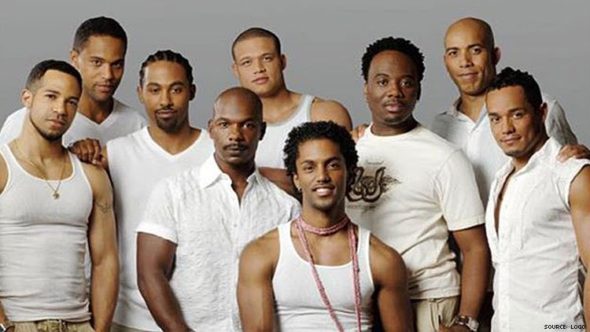I did it in secrecy every Wednesday night. It was my thing. I made myself a drink, got my favorite snack, closed the blinds, and turned off all of the lights in my apartment. Although I lived alone, the fear and shame I felt in 2005 by tuning in to watch Logo tv’s Noah’s Arc was real, and I couldn’t let anyone know how excited I was to watch the shenanigans of Noah, Alex, Ricky, and Chance unfold each week. It was my guilty pleasure, and I made sure to turn down the volume so that my neighbors couldn’t hear what I was watching and blow my heterosexual cover.
Fast forward to 2020; I laugh at how silly it was to be hiding who I was in the privacy of my own home. I’m a confident man now and walk through life much more authentically. As luck would have it, The first scripted television show featuring black gay men made their much-anticipated return to the small screen in the middle of Covid-19 mayhem via Noah’s Arc: The Rona Chronicles.
Many fans were happy for the return of the beloved series, even a few critics who, if anything, appreciated the nostalgia of it all. We all gathered together, now on our smartphones, smart TVs, laptops, or tablets, and the consensus was, it was a well-done effort by the cast, and the writer, director, and creator Patrick Ian Polk. Our old friends came back to visit us during the quarantine and proved that the chemistry is still there, and good black doesn’t crack.
The run time was a little over an hour. As we watched the characters give us a glimpse into their lives 15 years later, it was more than Alex’s classic one-liners and the overall socially relevant theme of the episode that stood out but the visibility of gay men of color over the age of twenty-five.
It wasn’t just viewing Noah’s Arc on social media giants Facebook live and Youtube, that was so refreshing, it was the truth that there are still vivid stories to be told about the same- gender-loving experience. Our lives evolve past night clubs, a youth-obsessed fascination within gay culture, and we accept the realization that everything and everyone will inevitably change. That’s a good thing.
The success of the reunion was about giving us hope when it’s so desperately needed and demanding that we have the opportunity to experience the next chapter of Noah and the gang.
The trip down memory lane with the groundbreaking series was needed, and it reminded us all how far we come. As Harlem talk show host and socialite Bevy Smith says, ”It gets greater later.” The success of the reunion was about giving us hope when it’s so desperately needed and demanding that we have the opportunity to experience the next chapter of Noah and the gang as they tackle life as it relates today.
A-listers Wanda Sykes, Lena Waithe, and Titus Burgess, all whom guest-starred in the episode, are evidence of the influence of Noah’s Arc and the passing of the torch of narratives still needing to be told. The iconic show of four friends figuring out love and friendship in Los Angeles is a story that is not only ongoing but relatable to men who identify as gay. I’m proud that I got to witness the event at this stage of my life when I can appreciate it on another level of understanding.
Will Noah’s Arc get the reboot it deserves? I certainly hope so. The fans need to know where the fellas can take us now that we’ve all grown up, and learned to love ourselves unapologetically. More importantly, representation still matters, and there is always a desire to see one’s self, regardless of where you are in life. Noah’s Arc can once again fill the void of diversity in television and coexist with brand new stories and characters for us to love.


